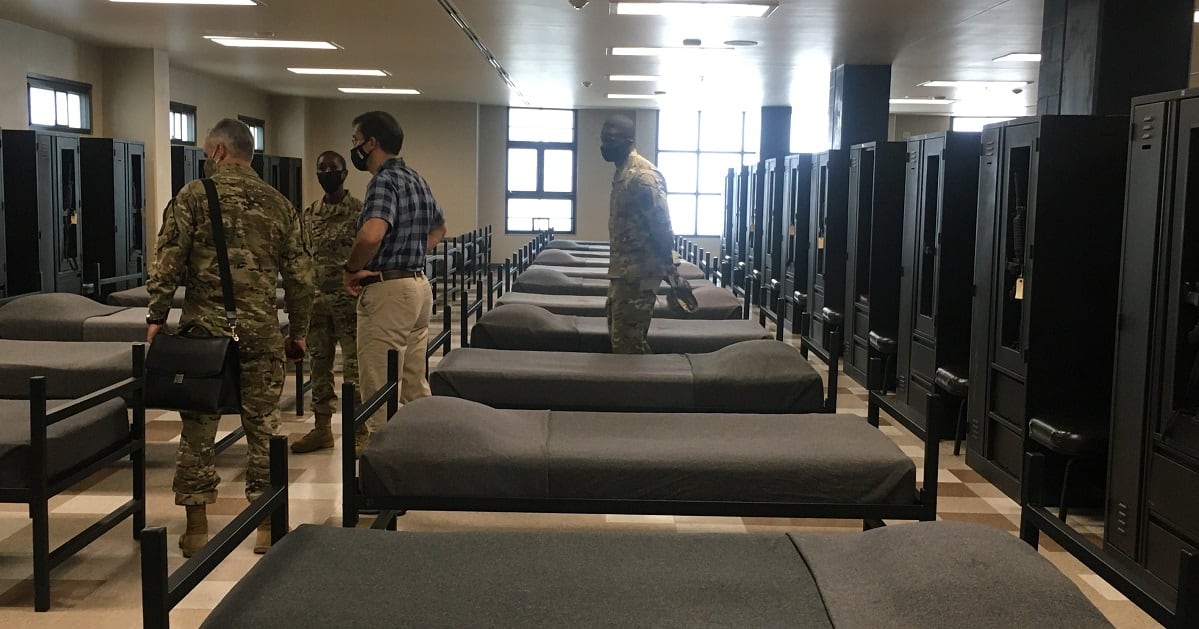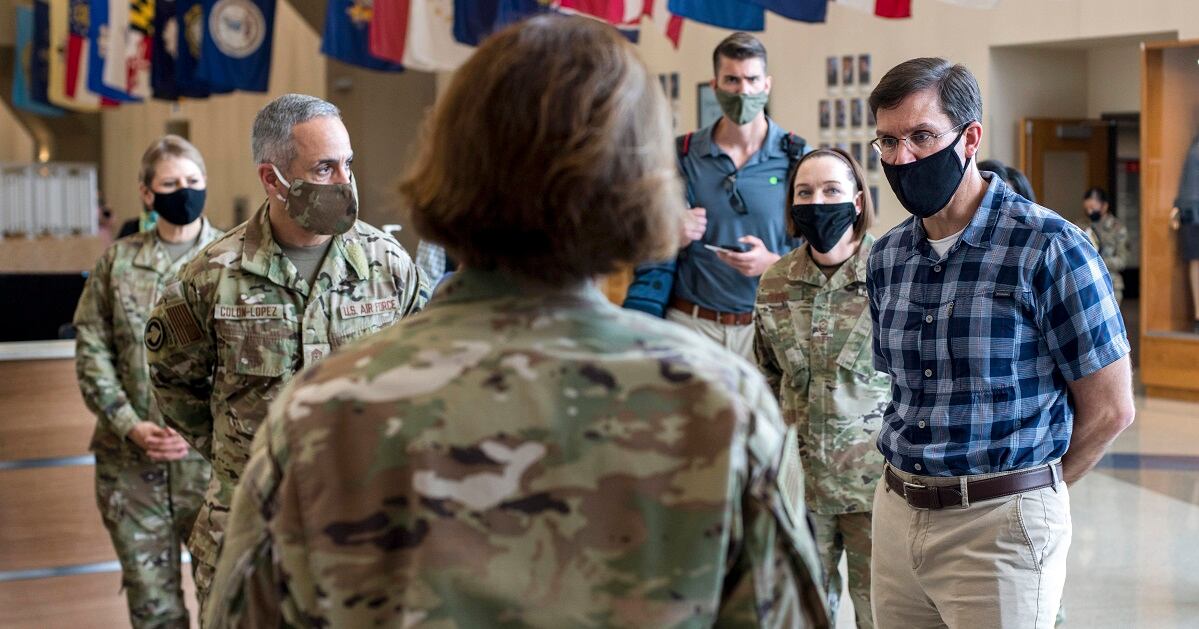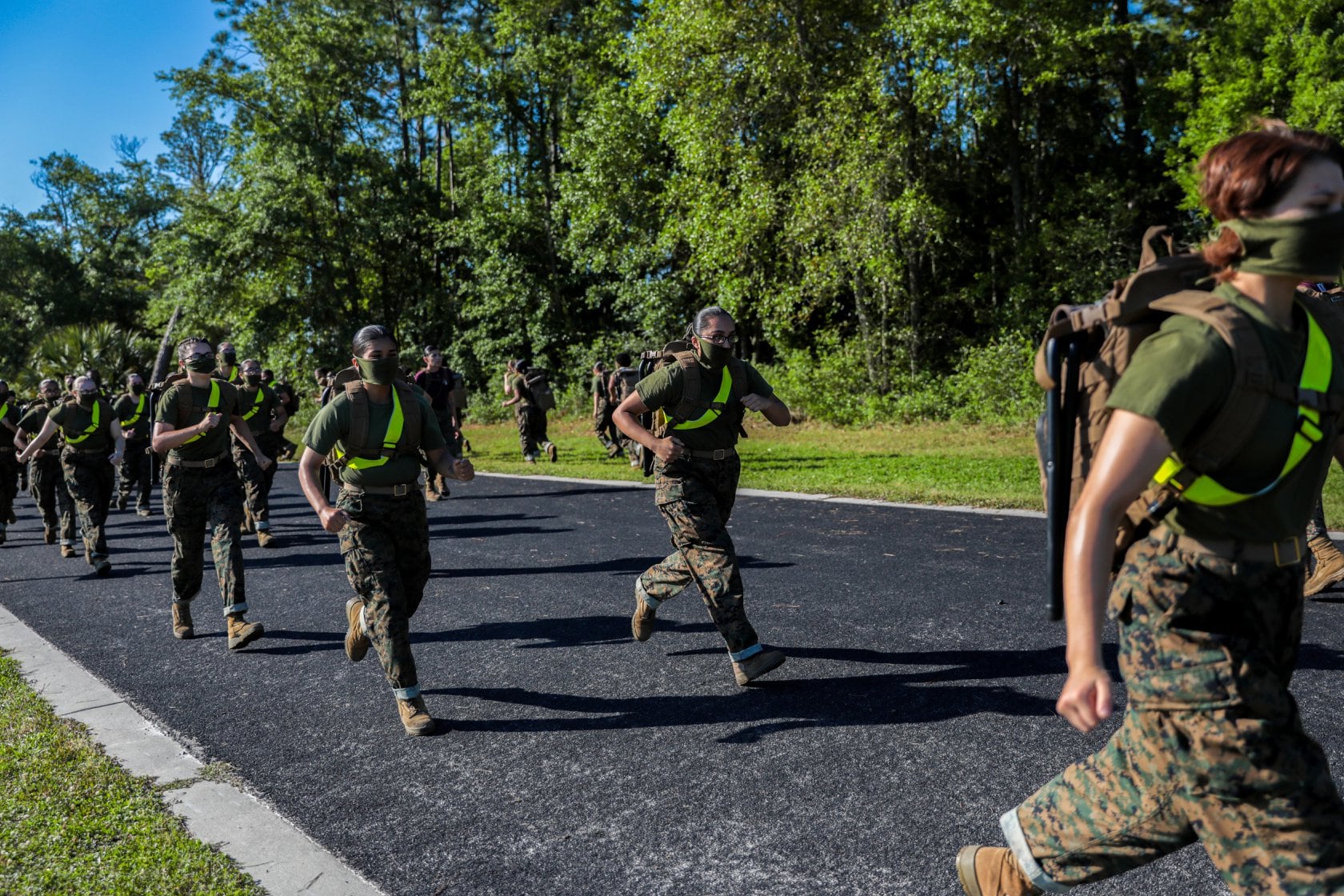JOINT BASE SAN ANTONIO, Texas ― It was early April and the mlitary services had a choice to make: Do we shut down initial entry training and risk our end strength numbers for years to come, or do we power through the COVID-19 pandemic and try to keep these close-quarters hordes of young people as safe and healthy as possible?
At Air and Education Training Command, officials decided to take a week to shut down and reset, then come back, nearly full-steam ahead with some key modifications.
“We directed our [military training instructors] to graduate a class one week early. They trained through the weekend, they met training objectives,” Maj. Gen. Andrea Tullos, who commands 2nd Air Force, told Defense Secretary Mark Esper on Tuesday at Lackland Air Force Base. ”At the same time, we told the recruiters: Don’t ship.”
The modified BMT went from about 800 trainees per flight to between 400 and 480, allowing for smaller groups in classroom instruction and some room to space out in housing bays with about 40 trainees, rather than 60. The service has instituted deep-cleaning protocols, mandatory mask usage and cots arranged with pillows alternating on the left or right, so no one is in each other’s breathing radius while in bed.

BMT also streamlined the uniform issue process. Rather than moving trainees through indoor stations to get each piece of clothing and pair of shoes, they are shuffled outside to pick up a pre-packed bag of items according to their sizes
After two weeks, the “restriction of movement” phase ends and they can get into more training around the base, including preparing for Basic Expeditionary Skills Training, in which a field test is required to graduate.
For extra space, as well as quarantine facilities, a tent city went up in a parking lot on base. There, trainees who tested positive, and their close contacts, could spend two weeks in isolation. But otherwise, Air Force indoctrination went mostly as normal, with less down time and some sections shortened, like time spent on military drill and ceremony.
The first two cohorts that went through BMT after mid-March had five confirmed cases of coronavirus, Maj. Gen. John DeGoes, head of the 59th Medical Wing, told Military Times. At that point, tests were only available for symptomatic trainees who could confirm close contact with a diagnosed case.
Since that point, and post-reset, there have been 30 more positive trainees, 29 of whom were asymptomatic at the time they were tested. That’s about a 0.5 percent infection rate in the 3,500 trainees who have gone through BMT since the beginning of the pandemic.
Testing protocols have evolved, from symptomatic-only to pre-graduation testing, to now arrival testing as well.
This is different from how some of the other services have approached it. For example, Marine Corps Recruit Depot Parris Island, South Carolina, puts trainees into full isolation for the first two weeks, focusing mostly on training that can be done via reading and virtual instruction.

They are then tested and sent into their regular facilities if cleared. If not, it’s back into isolation for two more weeks, along with their close contacts, like roommates.
At Parris Island, with between one and three cases per 200- to 300-person cohort ― Marine Corps officials have declined to give an exact number ― the infection rate is roughly, 0.6 percent. on par with the numbers nationwide.
RELATED

At Lackland, DeGoes said, the last symptomatic trainee reported on April 7, but didn’t show any symptoms until April 20. Since then, early screening and quarantine have caught any cases, and there has been no community spread, either to other trainees or to MTIs.
“I think the secret to our success … the testing before and after helps, but what really prevents an outbreak from occurring is the training instructors having a safety approach,” DeGoes said.
And by that, he means MTIs imploring trainees to speak up if they are feeling the least bit sick.
“Traditionally it was, cooperate and graduate,” he said, meaning that trainees with a sore throat or sniffles might be encouraged to power through, lest they be held back and recycled.
Now, they are warned that their symptoms might not just hold up their own careers, but could mean quarantines and illnesss spread for their fellow trainees.
Meghann Myers is the Pentagon bureau chief at Military Times. She covers operations, policy, personnel, leadership and other issues affecting service members.




